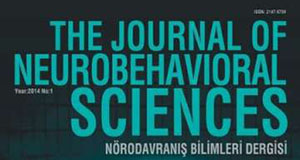
The evidence base data regarding long-term treatment of bipolar disorder (BD) is less than satisfactory. With the first-line rank The aim of the present investigation is to compare self-esteem, marital satisfaction, marital life and psychological well-being among employed and unemployed married women. The sample of the present study consisted of 51 employed and 41 unemployed married women. Rosenberg self-esteem scale, psychological well-being scale, marital life scale, marriage satisfaction scale were administered to all participants. The data was analyzed using pearson correlation, spearman analyze, t-test, mann-whitney u test, ki-square test, one way and multi-way variance analysis in SPSS-23 program. The results are discussed and conclusion of the study is below. The main findings showed that there was a significant difference between employed and unemployed married women marriage satisfaction and marriage life quality and also self-esteem rates vary depending on the income of the family.
The family is the most important and the smallest unit of the society. As an institution, marriage has many functions for couples such as achieving goals, growing together, surviving against life events, getting satisfaction, feeling peace and harmony and becoming life partners (Çağ and Yıldırım, 2013). In recent years, needs of the families are changing rapidly. As a result of the proliferation of needs, role distributions start to change in families, and this led to more involvement of women in business life. However, on the other hand, women are expected to act under normative gender roles of the society. For instance, in many societies, housework and child care responsibilities are perceived as feminine. Many studies showed that mothers take more responsibility of child care and homerelated works than fathers. Women, who try to make a contribution to the family economy by working in a paid job, frequently do not get support from her husband about housework and child care (Tezer, 1996). The working woman tries to maintain marital harmony and tries not to carry the stress of the workplace to home. Depending on this approach, married women who are working expected to have low psychological wellness but in the studies conducted in different countries, findings are contrary. In the light of literature and researches carried out in the world and in Turkey, despite the double burden on the shoulders of the married and working woman, they get more satisfaction from both their marriage life and business life. Concepts such as marriage satisfaction, marriage quality, and psychological well-being come to the forefront in defining good marriage (Ryff, 1989). The quality of marriage is related to the life satisfaction of the woman. One of the most effective ways of achieving life satisfaction for married women is reported as proving themselves in business life (Azar, 2006). The fact that unemployed women cannot have status in the society and they don’t have economic freedom and the chance of socializing outside the home. As a result, these negatively affect the psychological well-being of the women (Çağ, 2013).
The aim of this study was to assess the impact of employment and unemployment of the women with children in the context of the marital satisfaction, selfesteem, marital life, and psychological well-being.




